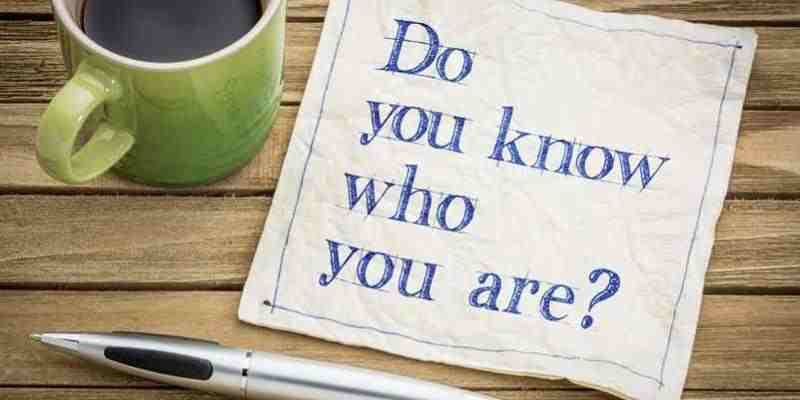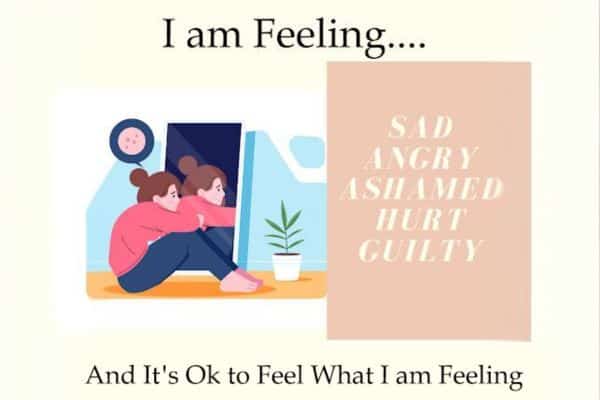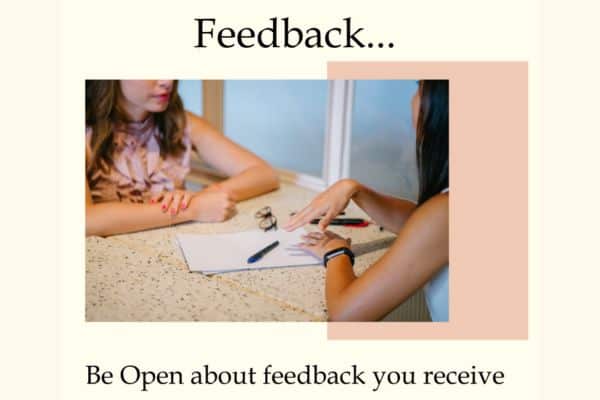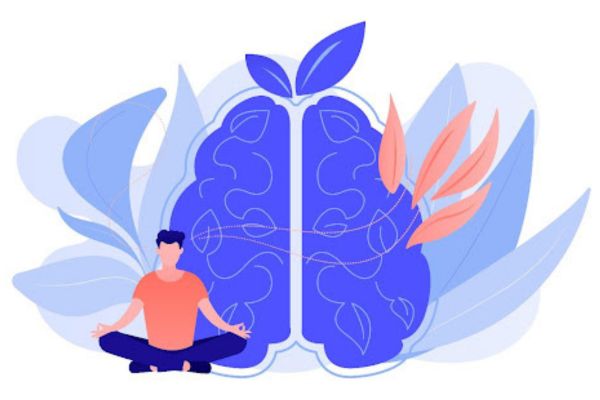Empower yourself by unleashing the power of embracing imperfection and vulnerability.
As straightforward as the idea of self-awareness may seem, most of us may not truly practice it nor give the concept much thought.
Today all of us hear the importance of self-awareness. We have intellectually understood the significance. However, few of us seem to have internalised it. It is no wonder that many of us facing mental distress often do not know where to begin our recovery journeys. In this blog, let’s reflect on ‘What is self-awareness’ and its importance in our healing and empowerment journey.
Let me begin by sharing my experience to understand the importance of self-awareness in my life.
Growing up as a teenager in school, I remember constantly feeling down, unmotivated, and nothing I did interest me or brought me joy (bummer.). I even tried to reach out to my teachers and counsellors for help, but I, myself, had no idea where these feelings of dread and dullness stemmed from.
What’s even worse was that despite reaching out for the help I so desperately needed at that time, I was subconsciously unwilling to face my demons as I realised now that a part of me was living in denial that there was anything truly wrong.
I’m sure that I am not alone in feeling this way, granted how Singapore’s largely conservative nature makes it difficult for many of us to address the mental issues we face openly.
However, it took me years before I finally decided that I needed to change the way I viewed life for my own sake and others. Through my realisation of my self-sabotaging tendencies, I acquired the will and motivation to step in the right direction towards inner peace and harmony.
Since you are reading this blog, I presume you or your loved one may also be facing issues of low self-esteem, maladaptive patterns, and so much more.
First and foremost, understand that you are worthy of help and that the path to a better mental space is always present and ready to be traversed! In this blog post, I will be addressing how practising self-awareness is essential in internalising our characters, subsequently empowering ourselves and managing the ever so philosophical question: “Who am I?”.
Who Needs Self-Awareness?
All of us essentially need self-awareness tools. I am sure all of us will at least tick one issue from the list below that may be challenging us.
- Low self-esteem.
- Consistent negative thoughts.
- Negative beliefs about self like,
- I am not good enough.
- I am not important.
- I am not loveable.
- I do not belong.
- I am not worthy.
- Maladaptive patterns that make you say
- “Why does this always happen to me?”
- “Poor Me”
- “I want to do better.”
- “I am always late.”
- “I always end up working at the last moment.”
- Stress and Anxiety
- Depression
- Relationship Breakups
- Relationship Issues
- Improving communications
- Eating Disorders
- Insomnia and Fatigue
This list is a never-ending list. Write your reasons for self-awareness.
How Will Self-Awareness Help for Empowerment and Growth?
Have I triggered your curiosity? Have you ticked at least one of the issues above with which you will need help?
I implore you to reflect on the following questions:
- Have you ever had instances of self-hatred?
- Have you struggled with feelings of guilt?
- Have you experienced feelings of intense sadness, anger or frustration?
- How about despair and fear of losing something or someone?
I know I have, and that is perfectly valid, understandable and that it is normal to feel this way from time to time. I now want you to reflect on
- How have these feelings impacted your thinking and your behaviour?
- Do you see a pattern for yourself, or are these feelings a one-off?
- For how many years have you experienced these painful feelings?
- Are you willing to continue to stay with these dark emotions?
If you are looking to change your behaviour, thinking or feelings, it always starts with self-awareness. Even a doctor cannot give a prescription without understanding the problem. Are you ready to be your own doctor?
Self-Awareness is the first step to make desired changes.
However, self-awareness by itself may not be sufficient. You will need to take your second step of executing the changes you want. In this blog, let’s look into the first step.
What is the First Step to Self-Awareness?
- The first step begins by acknowledging what we are feeling.
- There is no right or wrong.
- It is okay to feel what we are feeling – shame, disappointment, anger, hurt, and others.
When I was willing to explore my painful and negative feelings, I realised it pushed me towards self-growth. My giant balloon of fear started pricking and cracking. My self-confidence was on the rise.
With therapy in a safe and non-judgmental environment, I explored the triggers of my feelings. I realised the irrationality of my feelings that I had maladapted as a child. I was motivated to make the changes.
I realised something quite positive could sprout in our moments of negativity if we are willing to explore these feelings further. The self-hatred, or shame, or anger, or any other emotions that we experience can be the right step to awareness and an awakening for the transition that we may take to become the better versions of ourselves that we always sought out to be.
Most of us want to hide from our painful emotions. We do not dare to face them. We keep pushing them deep inside us. And hiding does not help in healing.
Are you motivated to take your first step? Almost as though a part of you realises that our mentality and actions would not serve us, implying a desire for change.
Why Do You Desire a Change in Yourself?
It is crucial to recognise what is worthy of change and what isn’t.
For instance, changing yourself to please others at the expense of your happiness is not something worthy of your time nor attention. In my opinion, making changes for others only helps us dive deeper into our painful and hurtful feelings of anger, shame and others. We cannot sustain the desired modifications to please others.
As a child, my parents always wanted me to study. But I did not understand the importance of studies and did it half-heartedly to please them. I was not able to sustain studying for long. However, when I became aware of how education can help me, I was motivated, and my parents did not have to say anything further for my studies.
Hence for a change to take place, self-motivation is essential. If it is a change that you acknowledge to be beneficial for yourself and see yourself placed in a much better place, mentally and emotionally, then perhaps it is worth exploring.
Is it Easy to Explore Our Feelings?
I am not saying it is easy. Truthfully, it was the most formidable job I had to do. You may run away, and you may hide. But when you are ready, motivated and willing, you will be able to notice your feelings and be okay about them.
Naturally, this is something that requires us to put in the effort, as well as courage on our part, to face what we may otherwise tend to run away from. But it is only through putting on the figurative elbow grease that can we attain a better, more complete sense of self.
However, most people tend not to grant themselves the time and energy to explore these ideas and are left only feeling upset.
Nevertheless, should we commit to facing ourselves, it would undoubtedly reward us in the future through self-acceptance, empowerment, and character growth. Our self-awareness journey can also manifest as positive actions within ourselves, such as greater self-control, higher self-esteem, and better decision making.
Now that I’ve gone on about the importance of self-awareness and how it can empower and incite positive change within ourselves, let us address a few tips on how we may go about doing so.
How to Develop Self-Awareness?
The Johari Window
The Johari Window is a psychological technique established in 1955 to help understand our relationship with ourselves and others. It shows us our different “selves” and puts it together to give us a complete picture of who we are as people. It is formatted in this way:
The Known Self
|
The Hidden Self
|
|---|---|
The Blind Self
|
The Unknown Self
|
This technique pushes us to explore ourselves in a more profound, more intimate way. It allows us to face not only how we view ourselves but also how others view us. Hence, granting us an outsider’s perspective into how we may be perceived, based on our interactions and actions with others, that we otherwise may not often get to see.
Note that no matter if the traits found in either quadrant are good, bad or neutral, it is still a piece of you, and it is essential that we realise and accept it. Only then may we be able to incite positive change in ourselves.
Self-awareness is not a skill that comes naturally nor easily to many and is often something that requires effort and courage to impart. Then ask yourself, why should we do so in the first place? What are your reasons for the change? Learn more on how to build your motivation and goals. (Link needed).
When you are working with the Johari Window
1.Be honest with yourself.
- As stated by Richard P. Feynman, “The first principle is that you must not fool yourself and you are the easiest person to fool.”, it is easy for us to slip into denial when it comes to facing our faults. We must not delude ourselves and paint ourselves as somehow unable to be in the wrong in our minds, as this mentality stunts any growth that we could impart in ourselves.
2. Be willing to take feedback
One task of the Johari window will include asking others about their views. Have you noticed what we expect with our questions? We want to hear only good things. We can get angry, sad, and defensive if something is said not to our liking. The exercise is futile if we approach it with deaf ears or with our frame of reference. Be open about receiving viewpoints from others. The task is not the time to argue back. Here you can ask questions that help you get answers.
- What makes you say this about me?
- Give me more examples.
- What do you notice about my behaviours?
- How would you describe me as a person?
- How would you describe my emotions?
3.Question ourselves to explore our issues
Self-reflection is part and parcel of self-awareness. Practice it to attain a better sense of self. Take the time to meditate, to be mindful of self and ask yourself,
- “What is the issue that is troubling me?”
- “Why is it troubling me?”
- “When did it start to become an issue?”
- “Which emotions and patterns get triggered?”
- “Which behaviours I repeat, and I don’t like that about myself?”
- “Is there anything else you’d like to tell me?”
The latter question was recommended by Jon Kabat-Zin, an American professor of medicine and the creator of the Centre of Mindfulness in Medicine, as a means to establish a direct connection between our conscious and subconscious. Meditate with either one or some of these questions in mind, and the answer would come to you naturally.
4. Different activities to work on your Johari Window
There are different ways to work on your Johari Window.
- Mindfulness Reflections.
- Write your story and read and reflect.
- Draw your story.
- Reflect with expressive arts like songs, dramas and more.
- Join a like-minded group.
- Do these exercises with a trustworthy friend.
- Work with a therapist to explore yourself.
Takeaways
These are just a few simple ways to help develop a better sense of self-awareness, and no doubt, more should be done to attain a greater understanding of self.
Insightful Counselling hosts an aptly named “Who am I?” workshop to expedite our self-awareness through Transactional Analysis (TA) and Expressive Arts therapy. In this activity-oriented workshop, learn about your repeated patterns of feelings, thinkings and behaviours and how that has formed your sense of self today.
In closing, the idea of self-awareness is not as simple as it would initially seem, and it requires quite the endeavour to attain. However, trust that it is worth it and the path to your better self is always within reach.
Read More : 25 Simple Ways To Boost Your Self-Esteem Quickly >>


















